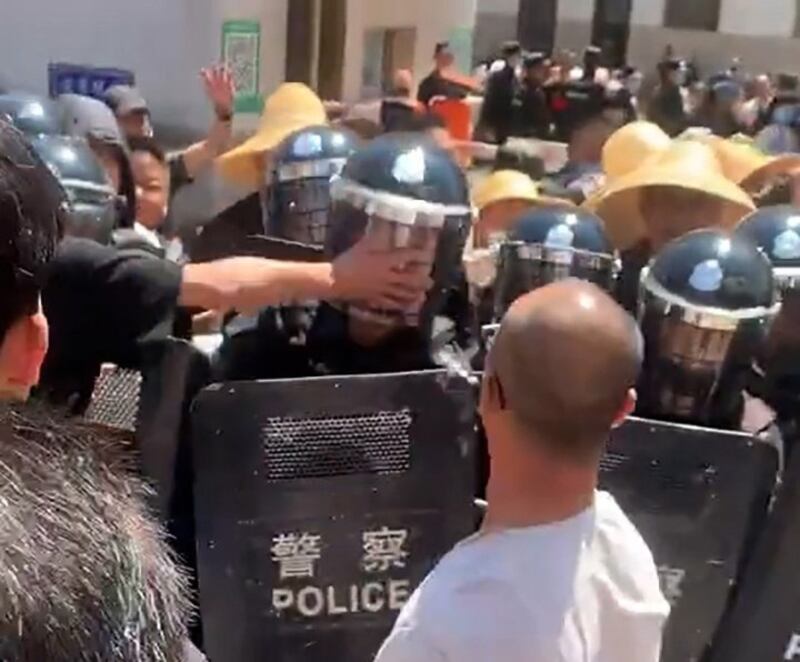A mosque in a mostly-Muslim town in southwestern China whose dome and minarets were demolished last year has been refitted with Chinese-style pagodas and billboards praising the Communist Party, according to a local resident and an overseas Muslim with connections to the area.
Last May, dozens of residents were detained in the town of Nagu in Yunnan province after clashes with police, when a government demolition team toppled the minarets and dome roof of the historic Najiaying Mosque.
The destruction was part of the "sinicization" of religion under President Xi Jinping that ushered in a nationwide crackdown on Muslim, Christian and Tibetan Buddhist religious activities and venues in 2017.
The mosque, run by Hui Muslims, had recently expanded its minarets and dome, a move that was ruled illegal by a court in Yunnan's Tonghai county.
A Muslim who lives close by the Najiaying Mosque who gave only the surname Ma for fear of reprisals said the building is now open again after receiving a Chinese-style makeover.
"It's open now," Ma said. "It was renovated and the dome changed into a Chinese-style building following the demolition."
‘Follow the Party’
Residents shared photos of signage outside the Najiaying Mosque, which read: "Obey the Party. Be grateful to the Party. Follow the Party."
Ma said all mosques in the area, which is home to a large Hui Muslim population, are undergoing similar changes.

"They all have to be changed. Most of them already have," he said. "Around 90% of local [mosques] have been changed."
The Najiaying Mosque was first built in the 14th century during the Ming Dynasty and has been rebuilt many times over the centuries.
The Arabesque-style mosque building was completed in 2004, and boasted four minarets and a dome, with enough space for thousands of worshipers.
But according to Ma Ju, a Chinese Muslim scholar living in the United States who remains in contact with many Muslims in Nagu township, it wasn’t just the building that got an overhaul.
He said the mosque had also been forced to undergo organizational changes.
"The authorities also used the reconstruction process to reorganize the democratically elected management committee for the mosque," Ma Ju said. "Now, there are no longer democratic elections, but appointments made directly by the government's religious affairs bureau and the United Front Work Department."
Under the control of the Communist Party, the United Front has the task of getting minority groups and organizations outside of the party-state to toe the line.
"Several schools linked to the mosque have been banned, and children aren't allowed to enter the mosque," Ma Ju said.
Repeated calls to the Tonghai County Ethnic and Religious Affairs Bureau rang unanswered during office hours on Tuesday.
Conflict over supreme power
Current affairs commentator Guo Min said the signs remind Muslims that, in China, the Communist Party is the supreme power, a claim that Muslims in Hong Kong say goes against the core tenet of their religion.
"The party controls everything, and they insist that we love the party, and highlight their supreme leadership over any religion," Guo said. "Religious belief must be predicated on loving the party."
"The authorities will never allow anything to deviate from that."
China's " sinicization of religion" policy, which has led churches in mainland China to display portraits of Xi and prompted local officials to forcibly demolish domes, minarets and other architectural features in mosques around the country.
The Communist Party now requires all religious believers to love their country as well as their religion, and claims that patriotism is a part of Islam.
In October 2023, some Muslims in Hong Kong spoke out against the raising of the Chinese national flag in formal ceremonies at Kowloon Mosque in honor of the anniversary of the 1997 handover to Chinese rule, seeing them as a challenge to the Islamic doctrine of the supremacy of God.
Translated by Luisetta Mudie. Edited by Malcolm Foster.
